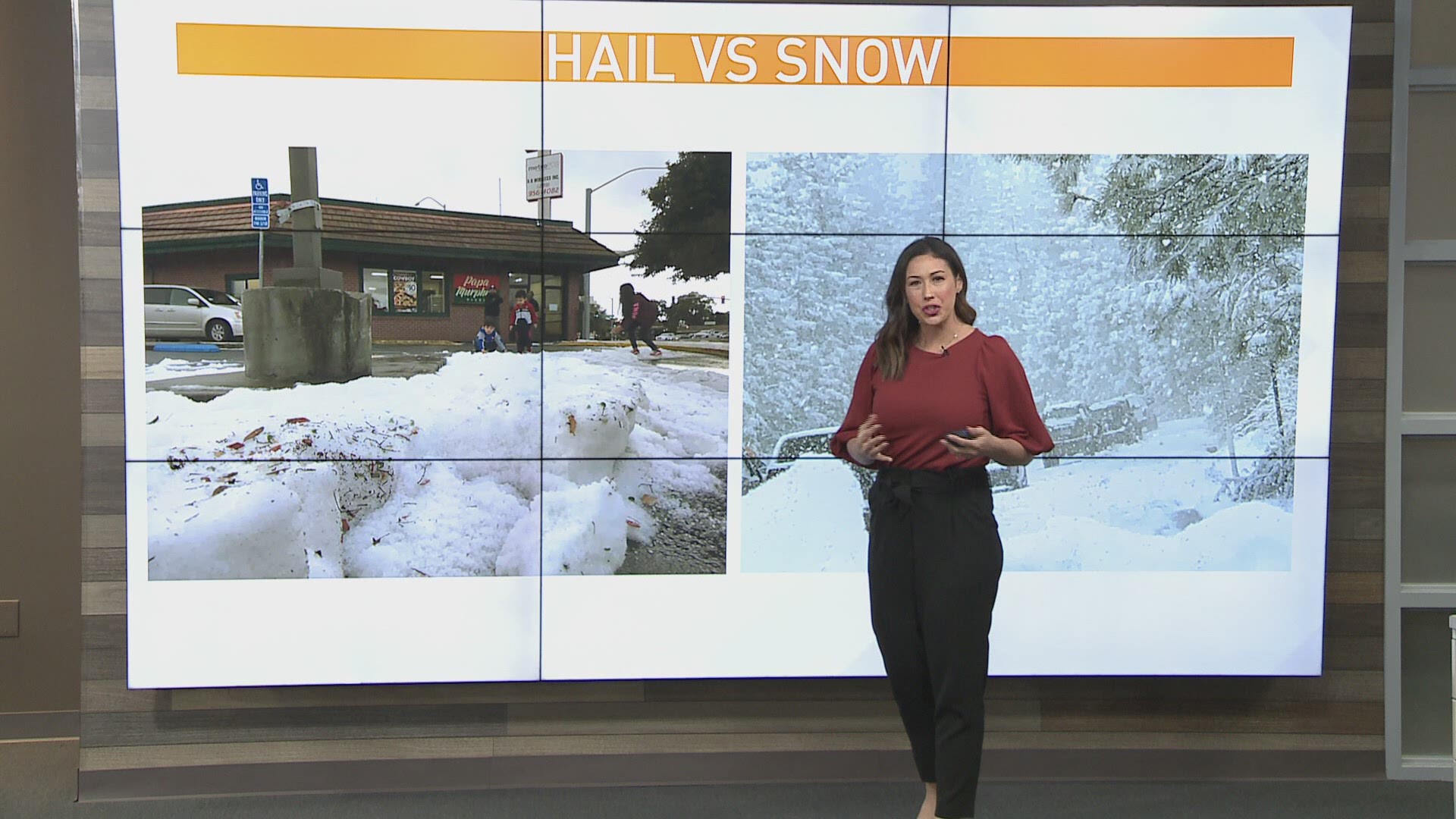SACRAMENTO, California — Recent thunderstorms have brought heavy rain and hail to the valley and foothills, leaving many communities wondering whether snow may have actually fallen.
Images of ice covered parking lots and driveways have been flooding news feeds from Stockton, Modesto, Lodi, Sacramento, and Woodland.
Debates on social media beg the question, "SO in the lower part of the state they call it hail, but in Tahoe they call it snow - it snowed people, its sticking to the ground correct??" says Facebook viewer Debi Walsh.
Unfortunately, we can say it did not snow in the valley. The difference is all in the temperature and structure of the hail/snow particle.
When it snows, it requires temperatures within the cloud to reach the freezing point and remain near freezing as it hits the surface.
Hail starts out as a raindrop that gets pulled back up into the thunderstorm, due to updrafts, and freezes into an ice pellet. Sometimes the ice pellets can be so small when they hit the surface and stick to other ice pellets they may look like snow from a distance.
Snow is an ice crystal that forms high up in the clouds. One or more ice crystals can come together to form beautiful and intricate patterns we know as snowflakes. Snowflakes are much lighter and fluffier when they land, versus hail which can be more crunchy and hard.
So, the next time you’re wondering if you’re looking at hail or snow, pick it up and ask yourself if it takes the shape of a more spherical/obtuse ice pellet? Or is it a fluffy detailed snowflake?
Continue the conversation with Carley on Facebook.
Stockton residents were left dealing with rain and hail. Some parts of the city looked like they were hit with a snow storm as opposed to hail.

